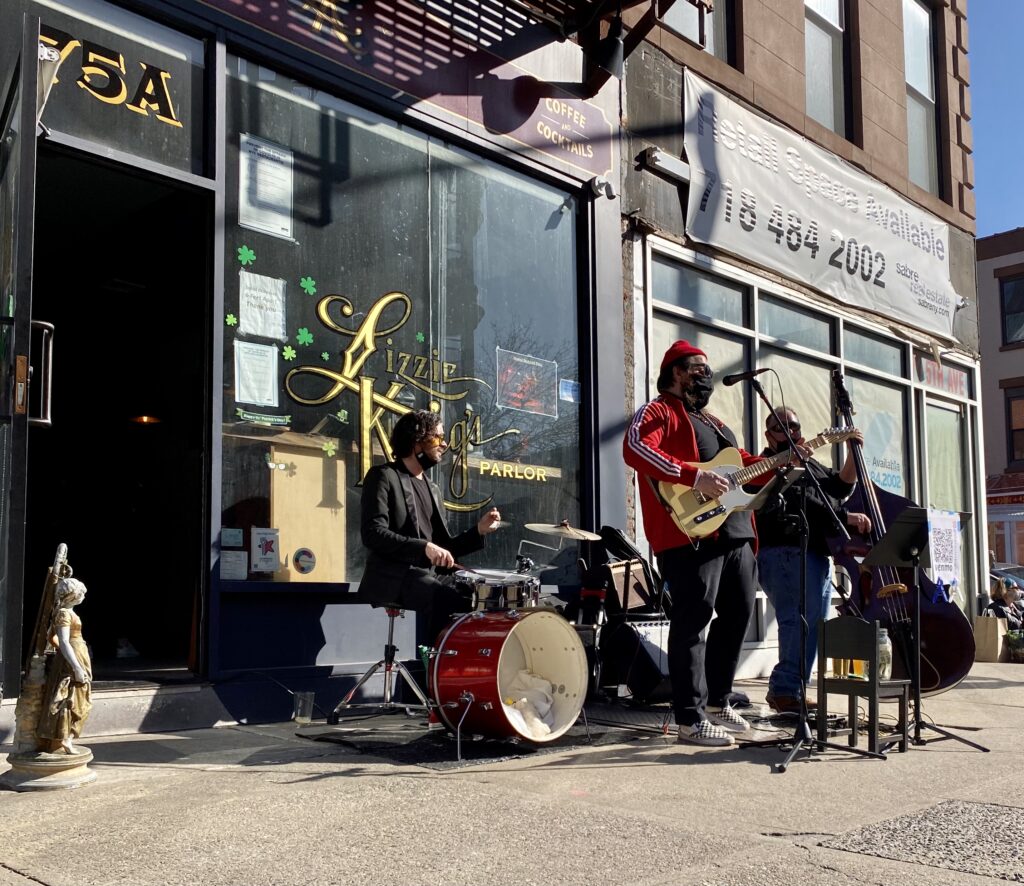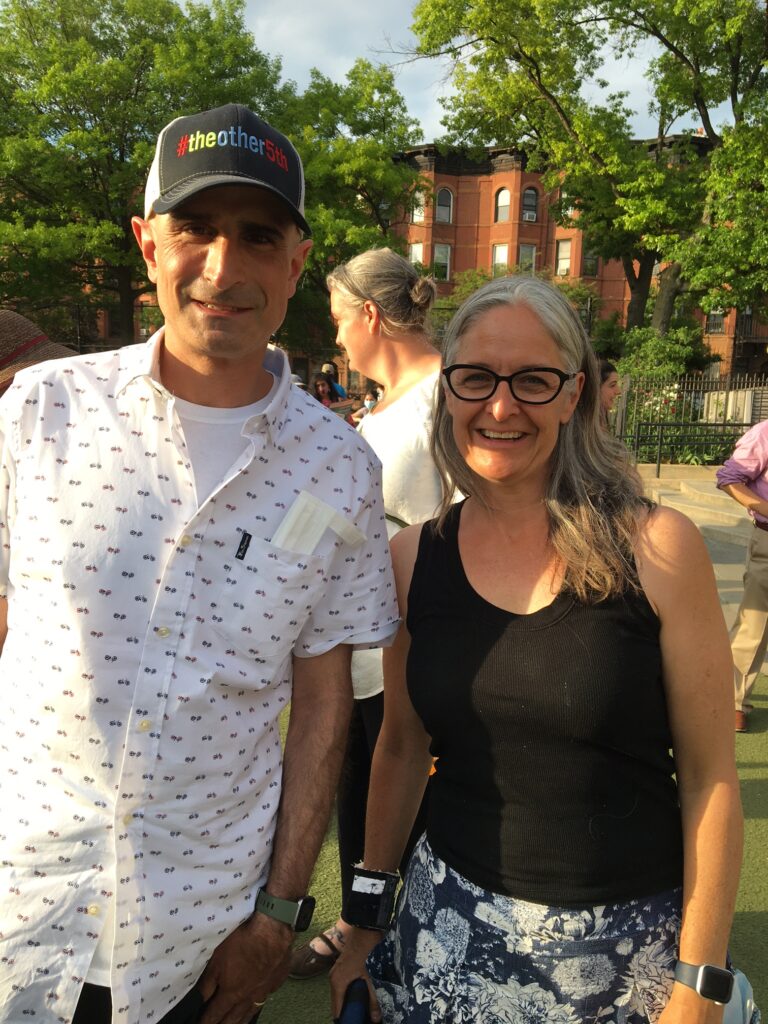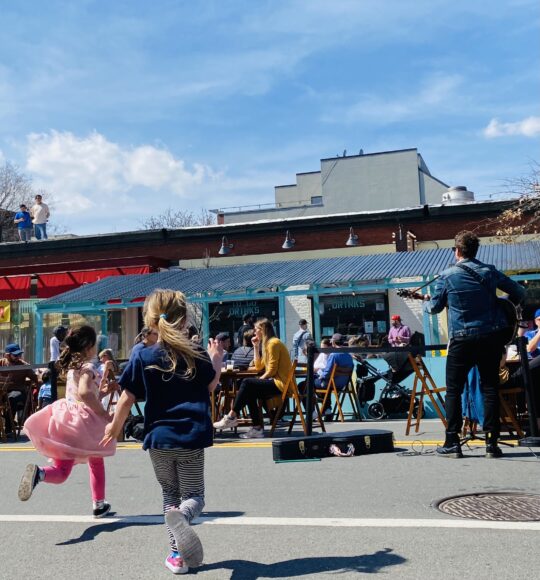The past year has not been an easy one for Mark Caserta: long days, high stress, lots of pivots, even a touch of danger. It may be premature to say the worst is over, but Caserta has at least earned the right to ease up a bit, and even to enjoy a bit of optimism for the year to come.
Caserta, a Civic Council trustee, is Executive Director of the Park Slope Fifth Avenue Business Improvement District (BID), prime booster for the businesses that line the avenue and several side streets from Dean Street to 18th Street. According to Park Slope Patch, 66 of the 520 storefronts in the BID were empty at the height of the pandemic in October, the highest vacancy rate since the BID was formed 12 years ago. That number is now down to 60, with several more establishments in the pipeline. In all, Caserta says, 40 places closed but 51 either opened or are in the process.
The BID launched several initiatives over the past year to keep businesses going, from helping owners secure Payroll Protection loans to launching the Park Slope Gift Card, good for purchases at hundreds of locations all around the neighborhood. Nothing, however, has helped more than Open Streets, which ran from last July to December and resumed on March 13.

Several stretches of 5th Avenue are closed to traffic Saturdays from 11am to 10pm. The program’s success is obvious not just in the crowds, the packed outdoor seating spaces, and the bustle of wait staff back at work. There’s a spirit up and down the avenue, a weekly celebration of survival and release from isolation. Restaurants and bars report doing more business on Open Street Saturdays than on typical Saturdays before the pandemic. Caserta says the success of Open Streets has been a major positive factor in helping fill all those vacant storefronts.
But if we who enjoy the elan of Open Streets take it for granted, we should know that it has come into being only through massive effort.
Almost as soon as the pandemic hit last spring, the BID began gathering petitions from bars and restaurants asking the city to shut down the avenue to traffic on weekends and open it up to pedestrians and businesses. “The minute the city gave the go ahead,” says Caserta, “they were ready to go.”

That was the easy part. Much harder was the physical closure of the streets. Caserta and Deputy Director Joanna Tallantire spent 13 hours each Saturday wrangling barriers, stopping traffic, and patrolling the closed blocks. They were aided by a few volunteers but received no money from the city and no assistance from the police, who have taken a hands-off approach to Open Streets. The only help they got was the city’s donation of a hundred or so barricades, “many of which were badly in need of repair,” says Caserta.
From lessons learned and memories of exhaustion, Caserta decided to hire staff this year. The BID launched a fundraising campaign with a goal of $50,000. To date, they’ve taken in $59,000, including a $5,000 grant from ConEd, $2,500 from Corcoran Realty, $29,000 from individual donations, and the remainder from bars and restaurants. This year’s budget for Open Streets is $80,000, with Sundays due to be added to the program in July, and with the BID chipping in the difference.
Caserta has used the money to buy more barricades but primarily to hire nine staffers thus far, with the hunt on for at least six more. The workers, who are obvious from their yellow vests, are all veterans of crowd control, having worked such events as the Gay Pride Parade. “The workers get $25 an hour and earn every penny of it,” says Caserta.
Though Fifth Avenue’s Open Streets program has not been the subject of the angry, organized opposition reported in other parts of the city, it has not been without its drama. There have been numerous dangerous confrontations sparked primarily by enraged drivers.
“Several drivers have destroyed barricades,” reports Caserta. “One woman picked up a barricade and threw it at one of our workers. There have been truly terrifying moments with drivers, some of whom seemed obviously drunk, and we’ve had a number of close calls. And then there are people who are just very, very angry that we’ve blocked the street.”
“There have been other complaints, about parking, overcrowding and noise. We respond as best we can, let owners know when there are complaints, but listen, we’re running a rescue mission for businesses here. We’re talking about survival, and that comes first.”
“It breaks my heart that 40 businesses closed. We lost half of our women-owned boutiques. There was so much doom and gloom in the beginning. But I’m seeing lots of entrepreneurship out there, and that’s inspiring. Also, owners have managed to secure lots of state, local and federal funds.”

“Now I’m thinking, cautiously, that we might get out of this okay.”
